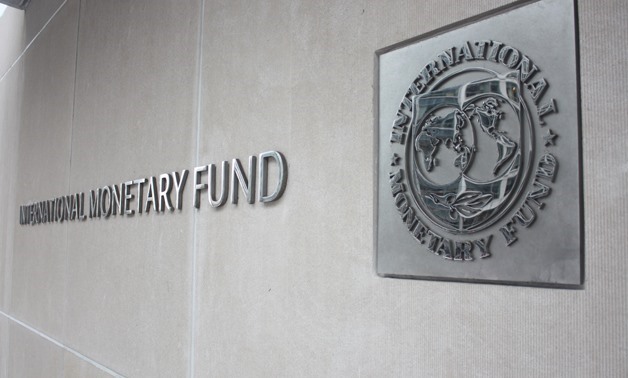
International Monetary Fund (IMF) - CC Wikimedia
CAIRO – 16July 2018: Pharos Holding summarized the international monetary fund’s (IMF) report about Egypt, taking away 20 points out of it.
According to pharos, the report expected Egypt’s economy to mark a progress during fiscal year 2018/2018, expecting the GDP to record 5.5 percent, up from 5.2 percent in 2017/2018, and the average inflation to reach 14.4 percent, down from 20.8 percent in 2017/2018.
It also anticipated the gross debt to decline to 86 percent of GDP, compared to 92.4 percent in 2017/2018, with a primary budget surplus of 2 percent of GDP, up from 0.2 percent in 2017/2018.
Regarding the subsidies, Pharos stated that IMF forecasted energy subsidy bills to slip to 2.1 percent of GDP, compared to 3.4 percent in the prior year.
“Financing gap to stand at $1.1 billion, CA deficit to slightly drop to 2.6 percent of GDP, down from 2.8 percent in FY2017/18 and FDI to record $9.5 billion, up from $7.8 billion in FY2017/18,” Pharos noted on the IMF expectations regarding the Egyptian economy.
The report revealed the IMF’s praise of the Egyptian restructuring program, expecting favorable near-term growth outlook, supported by a recovery in tourism and a rise in natural gas production.
IMF saw that the private sector will lead the business model, expecting it to absorb a significant increase in the labor force.
“The fourth review is expected to be around November 11, which will be followed by the disbursement of the fifth EFF tranche equivalent to $2 billion,” the report said.
Fiscal Policy
IMF expected the overall budget deficit to record 8.1 percent of GDP, according to the report.
“IMF supports the authorities’ plans for FY2018/19 to increase the tax revenue by 0.4 percent of GDP, to reduce the energy subsidy by 1.3 percent of GDP, and to reduce the wage bill by 0.3 percent of GDP,” it added.
The report also noted that increasing the efficiency of revenue collection is necessary to create fiscal space for investments in health and education, infrastructure and a sustainable social safety net.
Regarding the new fuel prices, the report clarified that IMF supports the new decision, saying it will help safeguard the budget from unexpected changes in the exchange rate and global oil prices.
The Cabinet announced on June 16 cutting the fuel subsidies, to lower the fuel subsidy to 25 percent now.
On June 12, Egypt also cut electricity subsidies, raising prices by an average of 26 percent in the 2018-2019 fiscal year beginning July.
The report also expected Egypt to keep the fuel and electricity prices stable in the remainder of 2018. “However, additional increases to achieve the objective of 100% cost recovery will be implemented by June 15, 2019 (excluding LPG and fuel oil used for electricity generation and bakeries),” it noted.
IMF supported that the financing gap of $1 billion for FY2018/19 to be financed through Eurobond issuance and/or from gross reserves, requesting modifications on budget sector debt in FY2017/18 due to higher-than-projected interest expenditures from the re-pricing of government bonds held by the CBE.
Risks
The report defined risks that might be faced as pullback by investors from emerging markets, a further increase in global oil prices, and deterioration of the security situation, which would negatively impact inflation, and cause adjustment fatigue that weakens reform momentum.
Monetary Policy
“Monetary policy should remain cautious to contain second-round effects from the recent increases in energy prices, and further policy changes should be guided by inflation expectations and demand pressures,” the report said.
It added that the IMF encouraged an interest rate-based monetary policy framework in the medium term, with inflation as the nominal anchor.
As per the banking system, it noted that Egypt’s banking system remains liquid, profitable, well capitalized, and resilient to moderate shocks.
IMF also supported the CBE’s request to delay the submission of the revised central bank law to the Cabinet from the end of June to the end of September 2018 to ensure that is it fully consistent with the program's objectives.
IMF’s Mission Chief for Egypt Subir Lall said on Twitter that Egypt’s inflation is expected to temporarily rise in 2018/19, reflecting increases in fuel and electricity prices. However, by next year inflation rate will move to single digits.
The Central Agency for Public Mobilization and Statistics (CAPMAS) announced that annual consumer price inflation slipped to 13.8 percent in June 2018, from 30.9 percent in the same month of 2017.
On a monthly basis, inflation increased 2.9 percent in June, compared to the previous month, to record 282.7 points, CAPMAS said.

Comments
Leave a Comment